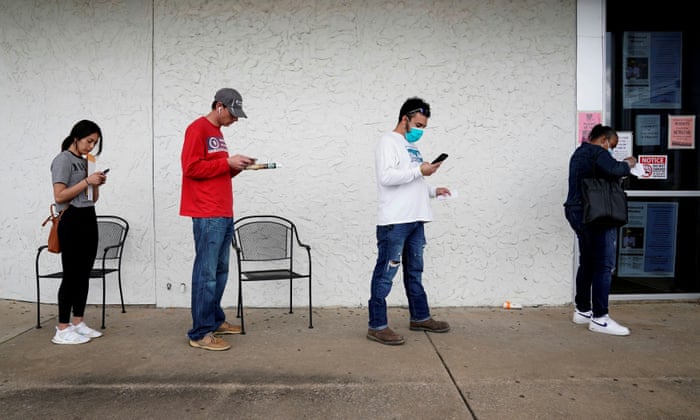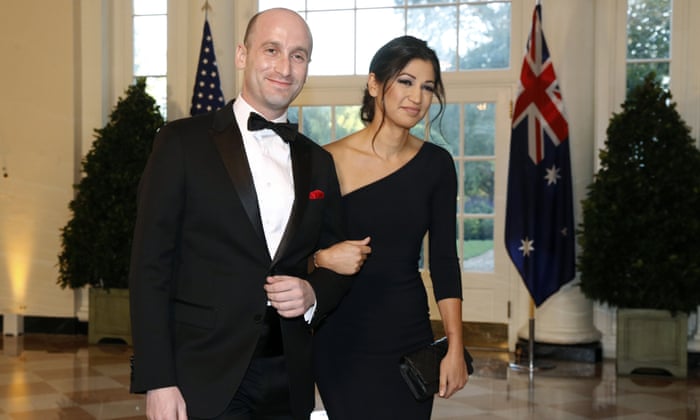Every time the president of the United States travels, he's accompanied by a cadre of Secret Service agents. Sometimes seen wearing crisp suits, sunglasses and ear pieces, the agents charged with protecting the president present a striking visual.
But Pulitzer Prize-winning Washington Post investigative reporter Carol Leonnig says the Secret Service itself is something of a mess.

In her new book, Zero Fail: The Rise and Fall of the Secret Service, Leonnig charts the agency's "chronic, ridiculously large mission," which includes protecting U.S. political leaders and their family members as well as visiting heads of state. The Secret Service is also charged with investigating financial crimes, such as counterfeit money.
Leonnig says the mission is made all the more challenging by the fact that the Secret Service is understaffed, underfunded and often working with outdated technology and inadequate training.
"Things were so bad in very recent years that agents were showing up to pick up a Cabinet member in their own personal car because the Secret Service's fleet was too expensive to maintain," Leonnig says.
There have also been embarrassing lapses. In March 2017, an intruder scaled the fence surrounding the White House and wandered the grounds, undetected, for 17 minutes. Leonnig says the breach highlighted a systemwide failure.
"The sensors, the cameras, the alarms [and] the radios didn't work," she says. "This is supposed to be the most secure 18 acres in the world, and they just didn't have the money to fix those things."
Secret Service agents are prohibited from speaking to the press without permission, but Leonnig says a number of her sources broke the rule because they were concerned about lapses within the agency.
"They strongly believed that it was a matter of time before a president was shot on their watch," she says. "They're worried that the agency increasingly is relying on luck. And it's really a matter of time before somebody finds the right chink and gets through."
Interview Highlights
On the Secret Service being short staffed and burned out
On the White House complex, which is protected by Secret Service officers, people told me that they never got a day off for months at a time. The average was for people to have to work at least one of their two days off every week. You can imagine the burnout that that causes; you can also imagine it affecting your hair-trigger sort of reflexes if there's an actual attack. It also impacts your training. You can't step away from the job to go do your marksmanship training and your attack on the principal training that's supposed to give you those split-second reactions if you're basically called into work every single day. So it's a huge impact.
On how former President Donald Trump's golf trips cost the Secret Service
Every president that travels is taking a small city with him wherever he goes. And, you know, I wrote about President Obama taking a trip to Africa, which featured a little bit of vacation and a little bit of work. And the estimates for the cost of that trip ... were in the tens of millions of dollars. So every president is going to cost a lot of money wherever they go. But what was so unusual about Donald Trump was he was deciding, first, to travel basically every other weekend in the first part of his presidency, wherever he chose to golf. And the second part of that was he was traveling frequently to his own golf clubs. In fact, I don't know of a time that he traveled to someone else's club. So that travel was, again, just bleeding the Secret Service dry. ... They made an emergency request in the spring for [more money] in 2017, just out of fear that they were not going to be able to cover the rest of their missions, including protecting the president and his family and protecting the White House. That's how much more money they needed for his golf trips.
On the 2012 scandal when the advance team of Secret Service agents for Obama had sex workers in their room in Cartagena, Colombia
Agents were flown back, unceremoniously sent packing, because they were under investigation for bringing prostitutes back to their room and turning a presidential trip essentially into like a bachelor's weekend in Vegas. And it really troubled, obviously, President Obama, but it also really upset Congress. And there were these demands for heads to roll. Unfortunately, the Secret Service leadership decided to, instead of look at what this shocking event revealed and try to fix it — they insisted it was a one-off. It was an aberration. Nothing like this ever happened before. And senators weren't buying this when Director Mark Sullivan testified that this was a shocking one-time event. They felt that he was putting his head in the sand. And in fact, what agents told me in the wake of this series of investigations, what they told me was this happened all the time. International trips were a perk for guys who had to work ceaseless hours in a stairwell or walk convention halls for 48 hours. International trips were something people were excited about doing to just sort of blow off some steam and get out of town. There was also a small cadre of Secret Service agents who treated travel on the road with a wheels up, rings off mentality.
On then-presidential candidate Bill Clinton allegedly wanting alone time at a YMCA without his security detail
The agents who have been trained in the security protocols for months to get this plum assignment of protecting a presidential candidate who ends up being president, they are sort of surprised and ask more questions. What gives, boss? Why aren't we going in? We're supposed to shield the guy, or we're supposed to screen the people that see him and the supervisors explain, "Look, drop it. He's here to meet a woman." They were pretty upset about this, not because it was their business to decide for Bill Clinton, the governor and would-be president, who he should be seeing and how he should be spending his time. They were upset because what happened on the other side of that door was their business. It was their job. They'd been trained in all these protocols about how you're supposed to secure someone and someone was telling them to let it slide. I know a lot of people will say this is really salacious, and why do you have to go into this? But what I want you to feel is what it's like to be that agent, when you're expected to be responsible for someone's life, but you're not being allowed to use the rules and the tools to do it. ...
A spokesman for former President Clinton has said that this is not true and it is an implausible scenario, and we report that in the book.
On the main criticisms of the Secret Service after John F. Kennedy's assassination
There were three major criticisms: The first was — and this is not their fault — they were stretched far too thin. What I didn't realize until I really started to look in the archives and the records and the memos [filed] by the director was that the director of the Secret Service, for a year and a half before the Kennedy assassination, had been begging for added agents and added staff, more tools to do the job because honestly, John F. Kennedy was running them ragged. He was an energetic, lively, attractive politician who loved to be with people. And he — a little bit like Donald Trump in one respect — was traveling the country like crazy, mostly to shake hands with voters. But the agents were exhausted, and they were literally standing up asleep a lot of the time. So one of the arguments, one of the complaints was your agency was undermanned. It didn't have enough people to do everything that was necessary to really secure that route in Dallas or any of them before.
The second very personal criticism was that a series of agents — no fewer than five who worked the detail that morning in Dallas — had been out until 2, 3 and 5 a.m. the night before at a private club, drinking, sometimes meeting women. ... As was said in the very, very painful Warren Commission hearings, what man can really have hair-trigger reflexes at 12 noon if he's been up till 2 or 5 in the morning drinking. And that was an unbelievable hair shirt that the service wore for a long time.
The third major criticism was sort of the basic issue of a failure of imagination, to use the term from 9/11. The service was warned in internal confidential memos that there were plots, chatter, if you will, about shooting Kennedy from a high-story building. And it wasn't that hard for the assassin, Lee Harvey Oswald, to find an empty building and shoot at Kennedy very, very close to the route and hit him in the neck and, ultimately, in the head.
On how Kennedy's assassination haunted the Secret Service
What I also think Americans don't really appreciate is while Kennedy's assassination was so, so tragic for the country, it was a gut punch like no other for the Secret Service. That haunted them. It led to suicides. It led to alcoholism. It was one of the worst episodes for the service, for all the obvious reasons, much harder on the service than the country. And they were absolutely determined to never let it happen again. And what's interesting about that for me is that they were vindicated. I mean, the other shootings that have happened, most importantly, the attempt on Ronald Reagan's life. They used their training and their tools, and they made split-second decisions that were the difference between us losing that president and him continuing to live. It was life or death — and they won.











